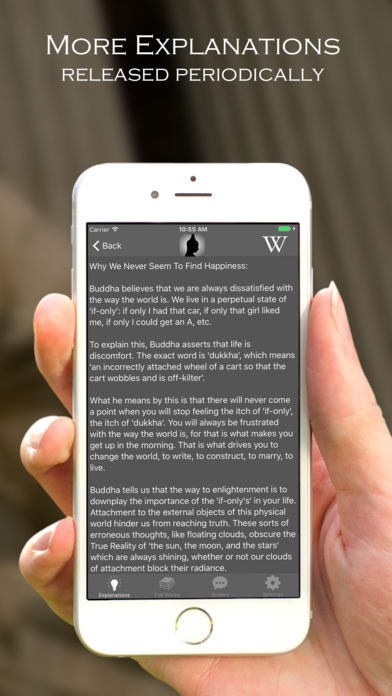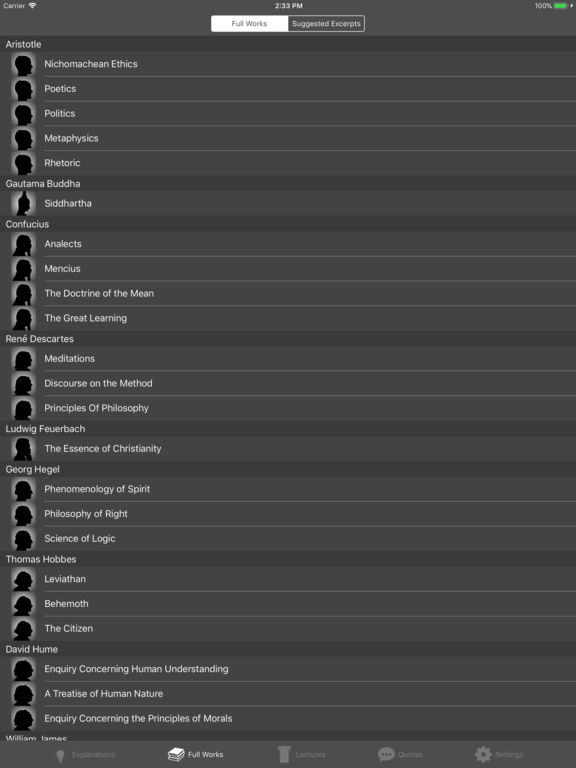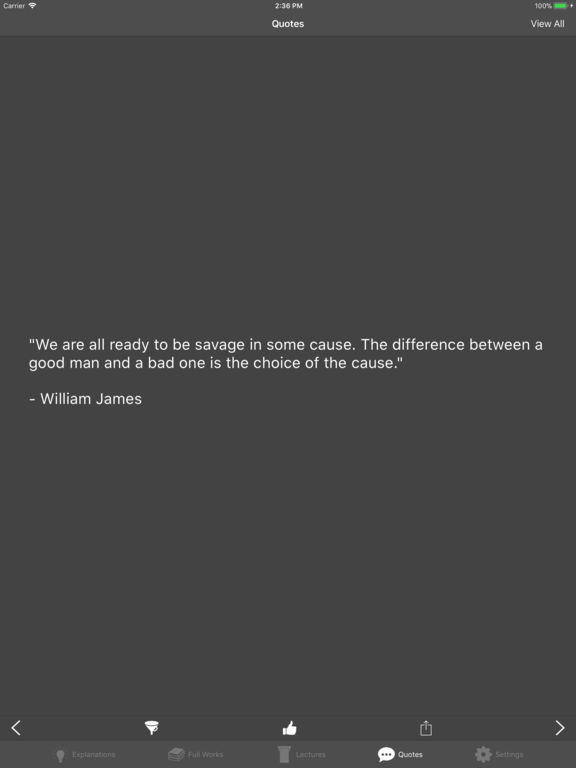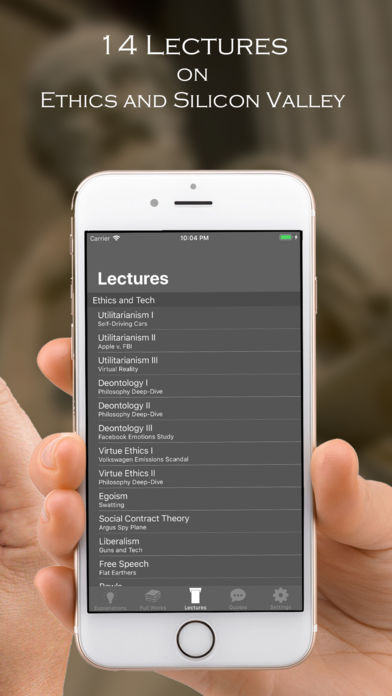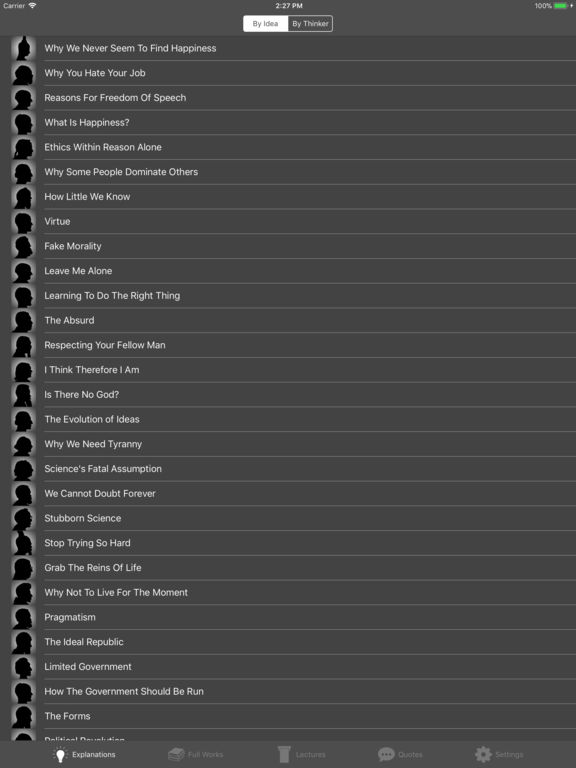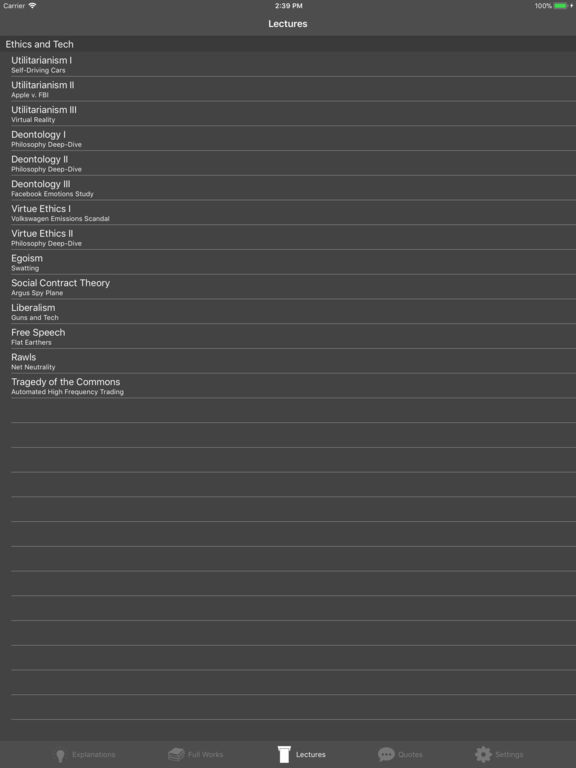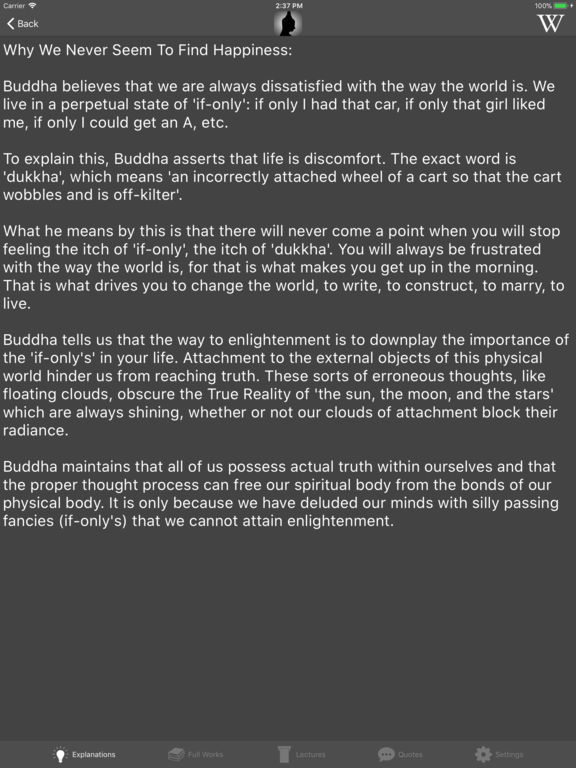Philosophy Explained!
-
Category Education
-
Rating 4.88889
-
Size 53.2 MB
Includes offline full texts of:Aristotle: Metaphysics, Nichomachean Ethics, Politics, Rhetoric, Poetics Buddha: Siddhartha Confucius: Analects, Mencius, The Doctrine of the Mean, The Great Learning Rene Descartes: Discourse on the Method, Meditations, Principles of Philosophy Ludwig Feuerbach: The Essence of Christianity Gaunilo of Marmoutiers: On Behalf of the FoolGeorg Hegel: Phenomenology Of Spirit, Philosophy of Right, Science of Logic Thomas Hobbes: Behemoth, Leviathan David Hume: Enquiry Concerning Human Understanding, A Treatise of Human Nature, Enquiry Concerning the Principles of Morals William James: The Will to Believe Immanuel Kant: Critique of Pure Reason, Prolegomena To Any Future Metaphysics, Groundwork for the Metaphysics of Morals, Critique of Practical Reason Soren Kierkegaard: Either/Or, Fear and Trembling, Stages on Lifes Way, The Concept of Dread Lao Tzu: Tao Te Ching John Locke: Essay Concerning Human Understanding, Second Treatise of Government, Some Thoughts Concerning Education Niccolo Machiavelli: The Prince Karl Marx: A Criticism of the Hegelian Philosophy of Right, Das Kapital, The Communist Manifesto, Wage, Labor, and Capital John Stuart Mill: On Liberty, Utilitarianism, The Subjection of Women Friedrich Nietzsche: Beyond Good and Evil, The Birth of Tragedy, Human, All Too Human, The Antichrist, Thus Spoke Zarathustra Plato: Alcibiades, Charmides, Cratylus, Critias, Crito, Euthydemus, Euthyphro, Gorgias, Ion, Laches, Laws, Lesser Hippias, Lysis, Menexenus, Meno, Parmenides, Phaedo, Phaedrus, Philebus, Protagoras, Sophist, Statesman, Symposium, Thaetetus, The Apology, The Republic, Timaeus Jean-Jacques Rousseau: The Social Contract Adam Smith: The Wealth of Nations, The Theory of Moral Sentiments St. Anselm of Canterbury: Proslogion, ApologeticLudwig Wittgenstein: Tractatus Logico Philosophicus


